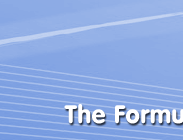      |
|
Contact us at: sooddram@gmail.com |
(Varatharaja Perumal) (Former Chief Minister of North –East Province of Sri Lanka)
Only the provision of voting rights to the people, existence of multi-parties and time to time conducting election to different political posts do not mean that true democracy prevails in its full meaning. In fact, the democratic civilization has, through the historical political development, accumulated wider constituents and components. The experiences and experiments through which Sri Lanka has so far undergone prove that it is essential for Sri Lankan Constitution to have the provisions of basic structures as inalienably enshrined in it. Constitutional democracy in the industrialized European and American Countries do not need to have such provisions in their Constitution because the democracy in those countries are evolved compatibly to the historical development of their political economy. But that is not the case with the countries which were under the European colonialism ruled for more than two to three centuries.
The capitalism which we the people of the third world countries experience now is not the historical evolution from our own mode of political economy which prevailed during the middle ages. Instead, the colonial powers destroyed our political economic system and the status which prevailed then and in its place the capitalism was imposed on for the benefits of such powers. The capitalism which was forced on us to adopt was not the capitalism of the independent nations but perhaps the dependent and distorted / appropriated capitalism in order to obtain primary products and raw materials as much as possible at cheaper costs and also to control monopolistically the markets for their manufactures. In such capitalism exploiters were completely European and all skills and labour of our nationals and resources were exploited and carried away. It took two hundred years for middle class and three hundred years for industrial class to emerge in our countries. In the case of Sri Lanka, due to the non availability of basic minerals and metals for industrial development and lack of agricultural inputs to the modern industrial sectors, except the Tea industries, national industrial capitalists did not come up until the colonial rule existed and only the collaborated middle class emerged out of services and trading activities. So the Sri Lankan nationalism against the British Raj was largely a result of socio-political awareness among the educated middle class and universal enfranchisement of 1931 and definitely due to the effect of the Indian independent struggle.
The Constitutional governance and the rule of law of the colonial powers accompanied time to time with reforms were also to preserve and protect the prosperity of the colonial capitalists and their strategic interests.
The democracy that was imparted to us by the colonial powers was not the true replication of the Western Democracy which prevailed then in their respective countries but distorted and diluted duplication of their models. Intention of bestowing such democracy and subsequent reforms was not to satisfy the aspirations of our people but to accommodate the local elites bred by the colonialists to take part in their colonial administration so that such elites would cooperate and collaborate with them to continue their exploitative processs and their oppressive regimes smoothly.
Taking into consideration the experiences of various nations, advanced principles of State formations and good governance and historical development of democratic norms and values, the Independent Sri Lanka should have been built up as a united democratic nation through establishing an appropriate political system providing space and forums for adequate participation of the national minorities in the legislative makings and in the governance, and also ensuring adequate security and safety to their physical and socio-economic bases and interests. Accordingly, a compatible constitution should have been drafted and adopted as to recognizing ethnic divergence, religious variants, regional disparities and castes in socio-economic relations.
Since the Universal enfranchisement of 1931, the electoral political ground began to breed the contradictory politics among the nationalities in Sri Lanka. Once the Sinhala ruling sections, by using the demographic majority, achieved in their hands the sovereignty of the united independent Sri Lanka, rather than uniting the people of Sri Lanka, they, by applying their hegemonic attitude, deliberately and systematically propelled the Lankan political economy to perennially subsist with the majority versus minority conflicts and civil wars. Their aim and objective was neither to satisfy the socio-economic aspirations of the Sinhala people nor to preserve and protect the peaceful integrity of the country. They used in their propagation different factors and they acted in different characters at different times so that they could gain and retain the power of the State through a short cut method and plunder the public resources. Basically they have been adopting twin “divide and rule” strategy, one is to build and continue to strengthen the pan-Sinhala State which is easy to be managed and controlled by promoting the Sinhala patriotic sentiments mixed with mythical prides and anti-Tamil phobia and the second, is to expand the threats to the socio-economic lives of the minorities and reduce the space and forums to their legitimate representations so that the minorities shall permanently mistrust and hate the Sinhalese as a whole and subsist in isolation with negative and resistant attitude towards the State and the rulers.
Consequently, Sri Lanka had to face two short term civil wars erupted due to the contradictory factors which functioned within the Sinhalese, made the country to cost around one lack Sinhala youths and hundreds of leaders including Comrade Vijaya Kumarathunga and Comrade Panditha of Communist party. The ethnic conflicts - based - civil war persisted for about thirty years inflicted the country to cost about two hundred thousand Tamil civilians including thousands of Tamil leaders, intellectuals, administrators, teachers and journalist, the list starting from the great Tamil leaders like Mr.Amirthalingam and Comrade Pathmanaba. Thousands of Sinhalese civilians, and leaders like former President Premadasa, former ministers Mr.Athulath Muthali, Mr. Gamini Disssanayakka, Mr. Ranjan Wijayaratne and Mr Fernando Pillai also were killed in addition to the deaths of tens of thousands of soldiers of the State, the members of the LTTE and the members of the other Tamil militant movements. The cost of public and private properties was worth of many tens of billions of dollars. In addition, the wars saddened mother Lanka to live with more than a lakh of widows and about another lakh of disabled and thousands of orphans deprived of their both parents.
However, the victory of the State over the LTTE brought to an end to the LTTE terrorism, battle field killings, killings in cross firings and by indiscriminate bombings and forced displacement of people, and thereby stopped further increasing in the numbers of widows, disabled and orphans. Despite of continuation of State-aided terrorism in a limited and selective manner, the absence of war perhaps brought to the people at large a comparatively fearlessness in their movements and confidence to progress their livelihood.
End of the war and the elimination of LTTE’s armed wing in 2009 paved the ways and provided the means to the Lankan leaders for reforming the State and the political system in order to permanently preventing re-emergence of past mistakes or mishaps causing unbearable miseries and tragedies. They should have taken necessary steps and measures to build the country as a truly united nation by civilianizing the entire state administration, democratizing the political environment, strictly ensuring the rule of law and carrying out genuine national reconciliation programmes with effective healing touches and treatments. But, Rajapaksa brothers & Co, instead, chose entirely anti-democratic path, esteemed them above the laws, and treated the people not as citizens but as subjects of their clannish Sovereignty. Their war-victory euphoria made them to dream a fantasy that there was no existence of any opposition against them and they were all powerful and enabled themselves to ridicule every legitimate institution and reduce anyone’s life and liberty. They were misusing and manipulating the State institutions and apparatus in order to reign the country with Chauvinistic ideology further combined with the elements of Zionism and Nazism, upgraded notorious version of authoritarianism of Mr. Jeyawardana and Mr Premadasa.
Notwithstanding of all defects and deficiencies embedded in the national fabrication of Sri Lanka, the common people have proved in the last Presidential election that the common sense and the serious concerns on democratic values strongly prevail among them and have handed over the opportunity to the progressive and democratic forces to rectify the past wrongs and failures and restore the foundation in so much firmly as that the polity of Sri Lanka would dynamically progress to the advanced stages and her economy would grow forward sustainably. Accordingly, the people of Sri Lanka has emphatically given the mandate for the 100 days programme, which includes abolition of executive Presidential system, introducing appropriate electoral system, and establishing independence of Judiciary and other national institutions that are essential to ensure democracy, equality, liberty, fundamental freedoms, and good governance. It is the duty of the new government to convincingly attempt to accomplish its time-framed agenda despite of various odds and challenges and inevitable delays.
It is a great historical opportunity to progressive forces of Sri Lanka to lay unshakable foundation for the good future of the country and the people of all nationalities living here together knowingly for more than three millenniums irrespective of changes of their religions, mother tongues and inhabiting locations and of demographical additions and deduction by immigrations and emigrations. It is a rare opportunity that should not be missed but to be utilized for establishing irretrievable / irremovable Constitutional foundations for Sri Lanka to advance with highly democratized political cultures and equitable socio-economic justice.
As the Constitution carries the title “Democratic Socialist Republic of Sri Lanka”, she is constitutionally a Republic, a democratic Republic, a socialist Republic. So here, as the basic structure of the Constitution, it firstly emphasizes that being a republic, the sovereignty of the country is vested with the people and not with any particular person in any position or with any institution. Secondly, that it is built on the democratic norms and thirdly that it adopts the socialist principles.
In the Preamble of the 1978 Constitution, it is said:
“… to constitute SRI LANKA into a DEMOCRATIC SOCIALIST REPUBLIC whilst ratifying the immutable republican principles of REPRESENTATIVE DEMOCRACY, and assuring to all people FREEDOM, EQUALITY, JUSTICE, FUNDAMENTAL HUMAN RIGHTS and the INDEPENDENCE OF JUDICIARY as the intangible heritage that guarantee the dignity and well-being of succeeding generation of the People of SRI LANKA …..”
However, Sri Lanka has been misruled by the successive governments during the last 35 years not on the basis pledged in the preamble of the constitution but on the autocratic assumptions and authoritarian ideologies using the defects and loopholes in the Constitution. In Sri Lanka, how democracy has been functioning?, where socialism survived?, how much the Judiciary was allowed to function independently?, what degree of rule of law prevailed?, was the government made obliged to answerable and accountable to the people? and how much the election commissioner was free to hold fair election?, the answers to all these question are obviously known to the people of Sri Lanka.
Notwithstanding of the superiority of the parliament, the devolution of powers to the provinces had been inalienably made as a basic structure of the Constitution in 1987. However, it is a well acknowledged fact that the successive governments of the last 27 years did not respect or adhere to the constitutional part in respect of the devolution of powers to the provinces. This shows that either only by the proclamation in the Preamble of the Constitution or by making the proposed Constitutional Council to determine the appointments to the nationally important higher offices, the independency of such offices or authorities cannot be sufficiently ensured. Hence, it is the duty of the genuine democrats and other progressive forces at this juncture to reassert and restore Sri Lanka to be invariably a true “Democratic Socialist Republic” in the future by irremovably inserting necessary extra-ordinary provisions as basic pillars of the Constitution.
The industrially developed democratic countries, instead of necessary written constitutional provisions, through the historical process of their democratic development, have established venerable political conventions and customs, which assure that the basic structure of their constitution could in no way be diluted or dismantled. In India such basic structure of the constitution is established by the Supreme Court of India perhaps through the application of its judicial legislative / review power. But in the case of Sri Lanka, the experience proves that it is essential to insert such provisions in written in the Constitution so that no act of any part of the government of anyone can deviate from or be detrimental to the principles of Democracy, Devolution, Socialism, Equality, Justice, rule of law and Fundamental civil, social, economic and Human rights. To preserve and protect such pivotal principles, the independency of all the nationally important public institutions / authorities / offices including the Judiciary and its power of judicial review of all laws and executive actions, is in any way or manner not allowed to be harmed or extricated. It is to be noted here that the Article 80(3) of the existing Constitution should be repealed since it is a contradictory provision to the Preamble of the Constitution and make the above –said principles redundant.
Law should expressively and categorically prevail whenever and wherever the public interests slips and common sense sleeps.
உனக்கு
நாடு இல்லை என்றவனைவிட
நமக்கு நாடே இல்லை
என்றவனால்தான்
நான் எனது நாட்டை
விட்டு விரட்டப்பட்டேன்.......

ராஜினி
திரணகம
MBBS(Srilanka)
Phd(Liverpool,
UK)
'அதிர்ச்சி
ஏற்படுத்தும்
சாமர்த்தியம்
விடுதலைப்புலிகளின்
வலிமை மிகுந்த
ஆயுதமாகும்.’ விடுதலைப்புலிகளுடன்
நட்பு பூணுவது
என்பது வினோதமான
சுய தம்பட்டம்
அடிக்கும் விவகாரமே.
விடுதலைப்புலிகளின்
அழைப்பிற்கு உடனே
செவிமடுத்து, மாதக்கணக்கில்
அவர்களின் குழுக்களில்
இருந்து ஆலோசனை
வழங்கி, கடிதங்கள்
வரைந்து, கூட்டங்களில்
பேசித்திரிந்து,
அவர்களுக்கு அடிவருடிகளாக
இருந்தவர்கள்மீது
கூட சூசகமான எச்சரிக்கைகள்,
காலப்போக்கில்
அவர்கள்மீது சந்தேகம்
கொண்டு விடப்பட்டன.........'
(முறிந்த
பனை நூலில் இருந்து)
(இந்
நூலை எழுதிய ராஜினி
திரணகம விடுதலைப்
புலிகளின் புலனாய்வுப்
பிரிவின் முக்கிய
உறுப்பினரான பொஸ்கோ
என்பவரால் 21-9-1989 அன்று
யாழ் பல்கலைக்கழக
வாசலில் வைத்து
சுட்டு கொல்லப்பட்டார்)
Its
capacity to shock was one of the L.T.T.E. smost potent weapons. Friendship with
the L.T.T.E. was a strange and
self-flattering affair.In the course of the coming days dire hints were dropped
for the benefit of several old friends who had for months sat on committees,
given advice, drafted latters, addressed meetings and had placed themselves at
the L.T.T.E.’s beck and call.
From: Broken Palmyra
வடபுலத்
தலமையின் வடஅமெரிக்க
விஜயம்
(சாகரன்)
புலிகளின்
முக்கிய புள்ளி
ஒருவரின் வாக்கு
மூலம்
பிரபாகரனுடன் இறுதி வரை இருந்து முள்ளிவாய்கால் இறுதி சங்காரத்தில் தப்பியவரின் வாக்குமூலம்
திமுக, அதிமுக, தமிழக மக்கள் இவர்களில் வெல்லப் போவது யார்?
(சாகரன்)
தங்கி நிற்க தனி மரம் தேவை! தோப்பு அல்ல!!
(சாகரன்)
(சாகரன்)
வெல்லப்போவது
யார்.....? பாராளுமன்றத்
தேர்தல் 2010
(சாகரன்)
பாராளுமன்றத்
தேர்தல் 2010
தேர்தல்
விஞ்ஞாபனம் - பத்மநாபா
ஈழமக்கள் புரட்சிகர
விடுதலை முன்னணி
1990
முதல் 2009 வரை அட்டைகளின்
(புலிகளின்) ஆட்சியில்......
(fpNwrpad;> ehthe;Jiw)
சமரனின்
ஒரு கைதியின் வரலாறு
'ஆயுதங்கள்
மேல் காதல் கொண்ட
மனநோயாளிகள்.'
வெகு விரைவில்...
மீசை
வைச்ச சிங்களவனும்
ஆசை வைச்ச தமிழனும்
(சாகரன்)
இலங்கையில்
'இராணுவ'
ஆட்சி வேண்டி நிற்கும்
மேற்குலகம், துணை செய்யக்
காத்திருக்கும்;
சரத் பொன்சேகா
கூட்டம்
(சாகரன்)
எமது தெரிவு
எவ்வாறு அமைய வேண்டும்?
பத்மநாபா
ஈபிஆர்எல்எவ்
ஜனாதிபதித்
தேர்தல்
ஆணை இட்ட
அதிபர் 'கை', வேட்டு
வைத்த ஜெனரல்
'துப்பாக்கி' ..... யார் வெல்வார்கள்?
(சாகரன்)
சம்பந்தரே!
உங்களிடம் சில
சந்தேகங்கள்
(சேகர்)
(m. tujuh[g;ngUkhs;)
தொடரும்
60 வருடகால காட்டிக்
கொடுப்பு
ஜனாதிபதித்
தேர்தலில் தமிழ்
மக்கள் பாடம் புகட்டுவார்களா?
(சாகரன்)
ஜனவரி இருபத்தாறு!
விரும்பியோ
விரும்பாமலோ இரு
கட்சிகளுக்குள்
ஒன்றை தமிழ் பேசும்
மக்கள் தேர்ந்தெடுக்க
வேண்டும்.....?
(மோகன்)
2009 விடைபெறுகின்றது!
2010 வரவேற்கின்றது!!
'ஈழத் தமிழ்
பேசும் மக்கள்
மத்தியில் பாசிசத்தின்
உதிர்வும், ஜனநாயகத்தின்
எழுச்சியும்'
(சாகரன்)
மகிந்த ராஜபக்ஷ
& சரத் பொன்சேகா.
(யஹியா
வாஸித்)
கூத்தமைப்பு
கூத்தாடிகளும்
மாற்று தமிழ் அரசியல்
தலைமைகளும்!
(சதா. ஜீ.)
தமிழ்
பேசும் மக்களின்
புதிய அரசியல்
தலைமை
மீண்டும்
திரும்பும் 35 வருடகால
அரசியல் சுழற்சி!
தமிழ் பேசும் மக்களுக்கு
விடிவு கிட்டுமா?
(சாகரன்)
கப்பலோட்டிய
தமிழனும், அகதி
(கப்பல்) தமிழனும்
(சாகரன்)
சூரிச்
மகாநாடு
(பூட்டிய)
இருட்டு அறையில்
கறுப்பு பூனையை
தேடும் முயற்சி
(சாகரன்)
பிரிவோம்!
சந்திப்போம்!!
மீண்டும் சந்திப்போம்!
பிரிவோம்!!
(மோகன்)
தமிழ்
தேசிய கூட்டமைப்புடன்
உறவு
பாம்புக்கு
பால் வார்க்கும்
பழிச் செயல்
(சாகரன்)
இலங்கை
அரசின் முதல் கோணல்
முற்றும் கோணலாக
மாறும் அபாயம்
(சாகரன்)
ஈழ விடுலைப்
போராட்டமும், ஊடகத்துறை
தர்மமும்
(சாகரன்)
(அ.வரதராஜப்பெருமாள்)
மலையகம்
தந்த பாடம்
வடக்கு
கிழக்கு மக்கள்
கற்றுக்கொள்வார்களா?
(சாகரன்)
ஒரு பிரளயம்
கடந்து ஒரு யுகம்
முடிந்தது போல்
சம்பவங்கள் நடந்து
முடிந்துள்ளன.!
(அ.வரதராஜப்பெருமாள்)
அமைதி சமாதானம் ஜனநாயகம்
www.sooddram.com